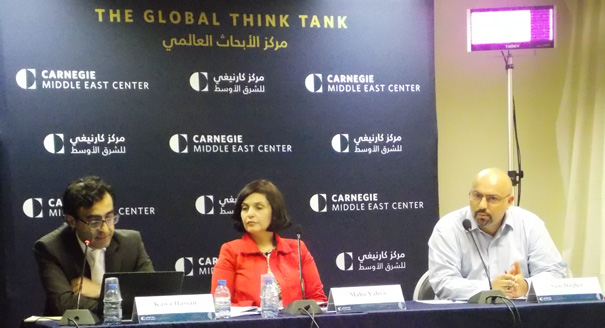Registration
You will receive an email confirming your registration.
The Kurdistan Region of Iraq (KRI) enjoys relative stability, security, economic development, political pluralism, and a margin of freedom for civil society. It is playing a pivotal role in the fight against the self-proclaimed Islamic State, and has immense proven oil reserves and natural gas reserves. This perception of stability has led many to describe the KRI as the “Other Iraq.” But is this assessment accurate?
The Carnegie Middle East Center presented and launched “Kurdistan’s Politicized Society Confronts a Sultanistic System,” a paper on the internal political and society dynamics of Kurdistan by Kawa Hassan. Along with Sam Dagher, Hassan discussed the nature of the ruling elites of the Kurdistan Democratic Party (KDP) and Patriotic Union of Kurdistan (PUK) and their attempt to quell and co-opt public dissent, as well as the possible implications for the region. Carnegie’s Maha Yahya moderated.
Sam Dagher
Sam Dagher is a senior correspondent at the Wall Street Journal, whose work focuses on Syria, Iraq, and Iran.
Kawa Hassan
Kawa Hassan is a visiting scholar at the Carnegie Middle East Center and director of the Middle East North Africa Program at the EastWest Institute’s Brussels office.
Maha Yahya
Maha Yahya is a senior associate at the Carnegie Middle East Center.
